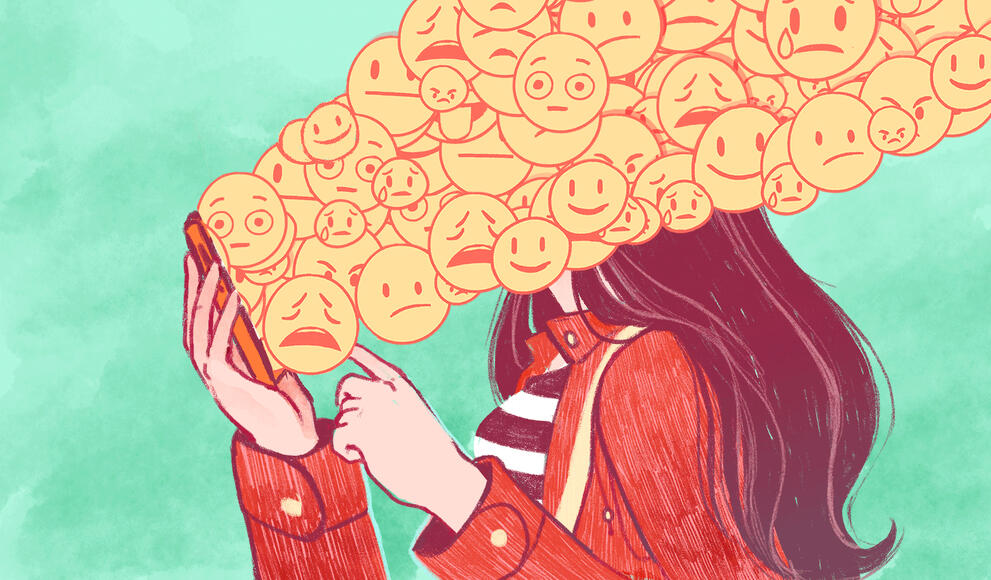An Authority on Pessimism, Wellesley Professor Julie Norem Comments on Happiness for an Atlantic Feature

Is there a particularly American approach to the idea of happiness? Julie K. Norem, Margaret Hamm Professor of Psychology, says yes. "[It's] a very American idea, that if you're unhappy, you're doing something wrong," she said. "It's your own fault. I think there is guilt and anxiety about not being happy, and that's part of what drives the market for self-help books." Norem made the remarks in a recent Atlantic article about a new "app" that's meant to make the user happier. Norem is an authority on the topic of 'defensive pessimism' who is regularly cited by major media.
The Atlantic article describes 'defensive pessimism' as "a strategy some people use to prepare themselves for situations that make them anxious. Rather than thinking positively about an upcoming presentation or vacation, reassuring themselves that everything's going to be alright, defensive pessimists instead think through every possible thing that could go wrong, which helps them mentally prepare for challenges, and feel calmer." Norem explained in the piece, "When we do studies where we put defensive pessimists in more positive moods, they actually perform more poorly. Actively pushing yourself to be positive, if you're not naturally so inclined, doesn't always help."
Norem was also recently interviewed for the public radio show Inflection Point. Listen to a podcast of the show, which explores Norem's ideas about 'the positive power of negative thinking." According to the show’s website, Norem's research focuses on "the strategies pessimistic people use to pursue their goals, and on the ways knowing yourself influences your performance and your relationships."
Norem teaches personality psychology with a focus on optimism and pessimism. She researches strategies people use to pursue goals and how self-knowledge influences adaptation, performance, and social relationships. In her teaching she uses her research as an example of the need to “challenge the ‘easy’ conclusions that fit with general cultural sensibilities,” she said in an email interview. She explained, “In the U.S., in particular, people often readily accept the general proposition that optimism is ‘good’ and pessimism is ‘bad,’ without pausing to think about what that really means as people are making decisions in their lives. Even more generally, we often don’t think about the ways in which individual difference in personality and circumstances can influence what works well and what doesn’t. I think my research is a good example of the ways in which one size definitely does not fit all—[that is], that a given approach won't work well for every problem or for every person.” Norem finds that “getting students to think about that can be a useful way to help them avoid getting stuck in just one perspective on the world. To me, that’s a crucial aspect of a liberal arts education.”
